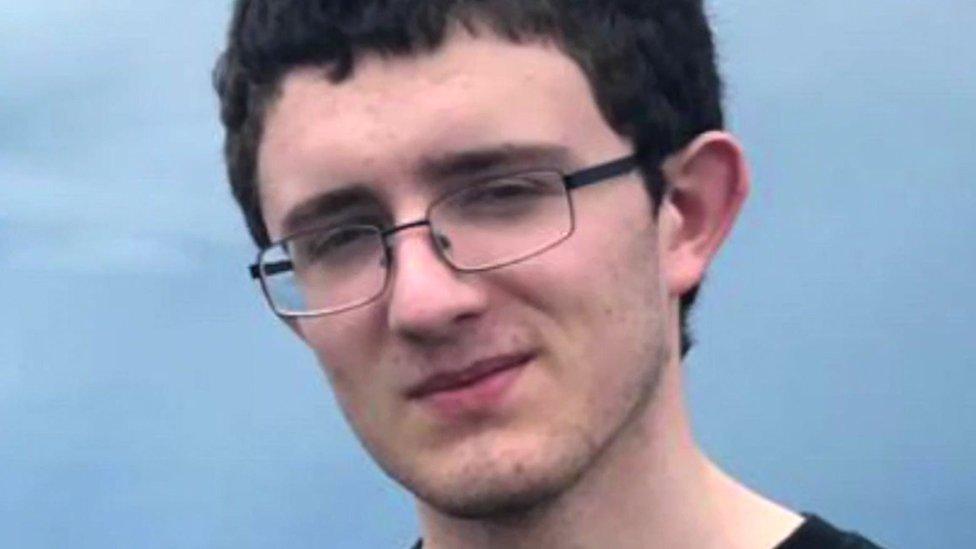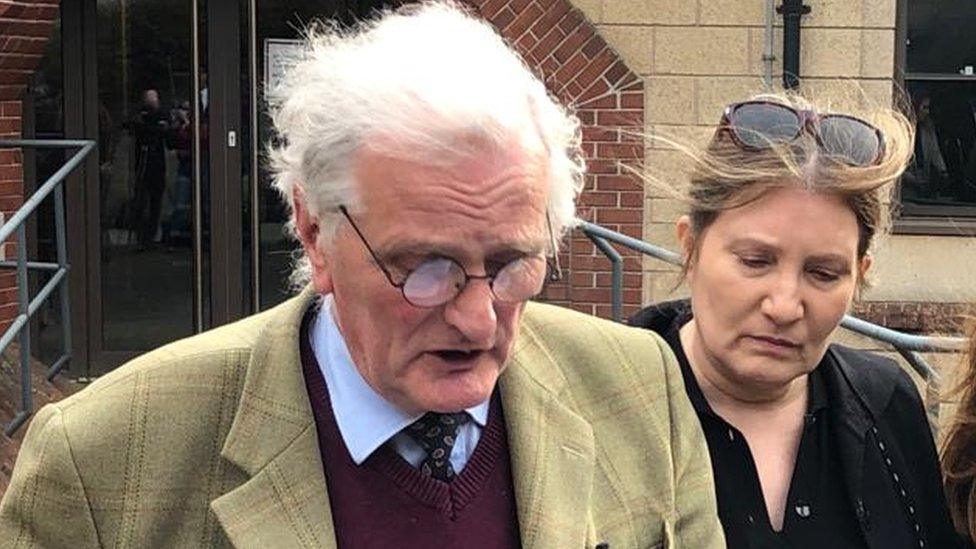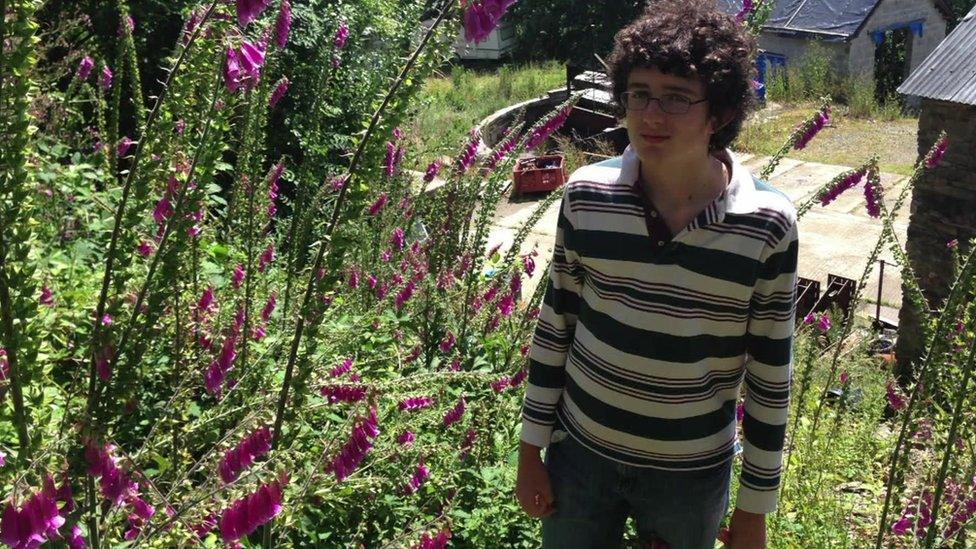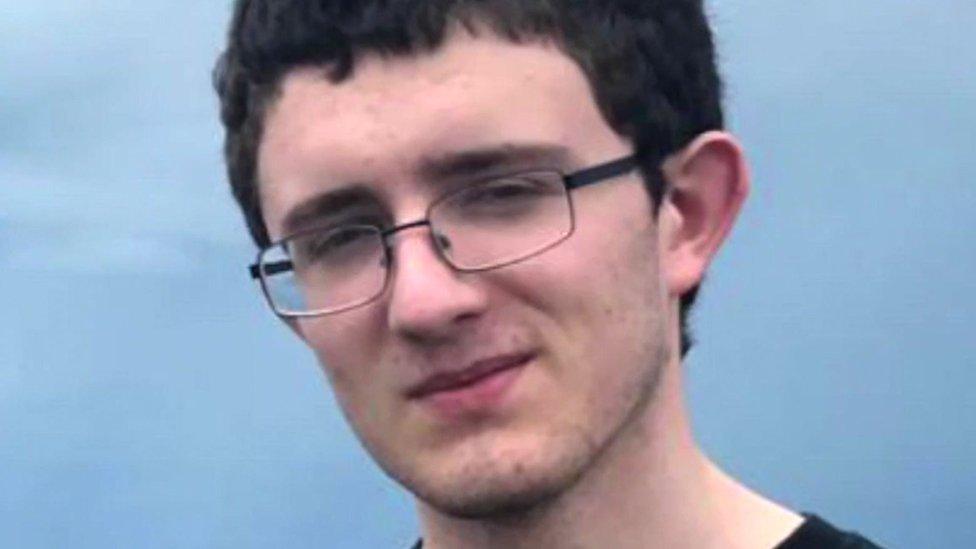Exeter University overhauls welfare after student death
- Published

Harry Armstrong Evans took his own life at his family home in Cornwall
A university has overhauled its approach to suicide prevention following the death of a student.
Harry Armstrong Evans, 21, took his own life in June 2021 after suffering a mental health crisis at the University of Exeter.
A coroner has since outlined areas of "concern" to prevent future deaths.
Mr Evans' family said the university's response had "made the right noises" but expressed doubt over whether there would be sufficient change.
Rupert Evans told the BBC: "They have admitted a lot of the mistakes which were made.
"However, there is virtually nothing in their response that actually ties them down to changing anything."
He added: "You get more protection if you buy a washing machine than if you go to university."

Harry Armstrong Evans's father Rupert read out a statement after the inquest, alongside Harry's mother Alice
Described by his father as "delightful, thoughtful with so much going for him", Mr Evans had been in the third year of an astrophysics degree when he took his own life at his family home in Launceston, Cornwall.
At an inquest in October 2022, assistant coroner for Cornwall, Guy Davies, said Mr Evans had suffered an "acute" mental health crisis. during lockdown.
He said this was "preceded by a catalogue of missed opportunities" and "system failures".
This "led to an absence of proactive results which meant Harry could not receive support", he added.

Harry Armstrong Evans died in June 2021
In a subsequent report, the coroner raised concerns around staff training on mental health awareness and an "absence of engagement" with the student.
Other concerns related to the sharing of information with families, support from students' tutors and whether the existing welfare case management system was "fit for purpose".
The university has now responded in a letter to the coroner citing its plan for change.
This includes:
A review of mental health training for all student-facing staff with "immediate" guidance outlining how colleagues and students can "seek support".
Working with the NHS to "optimise" support for students, continued welfare advisors at hubs and a new "enhanced" out-of-hours operation.
The "formalisation" of a process where students' families, guardians or trusted contacts are contacted in time of crisis and procedures to "ensure contact with family is routinely considered".
Personal tutors to "reach out" to students they feel are struggling and identify support available, including referral to expert support.
A review of academic support for students
A new welfare case management system which tracks student progress and stores referral details to be launched "as soon as possible" in 2023/24.
Staff to be warned of "potential weaknesses" in the existing welfare system in the meantime.
A new computer system to manage student welfare records

The University of Exeter said it had provided a "comprehensive response" to the coroner's recommendations
The coroner had invited the university to review whether "pastoral tutors should offer to exchange mobile phone numbers with their students".
However, on this point the university said "concerns have been flagged" by staff due to "potential safeguarding implications".
In response, Mr Evans has called for the university to be "honest" about the limitations on its "duty of care".
He said: "You sign up for university at £9,000 a year and what do you get? Virtually nothing and I think it's totally outrageous."
He also spoke of the family's grief, adding: "It's indescribable. People say time heals, I'm afraid it doesn't. It's every hour of every day."
He added: "We will go on reminding universities that we are still watching and monitoring and making it public."
Offering their "deepest condolences" to the family, a university spokesman said they had "carefully considered" the coroner's conclusions.
He said they were "committed" to enhance support and operations further, "specifically in those areas recommended by the coroner".
They had also implemented recommendations based on Universities UK guidance on suicide prevention, he said.

Follow BBC News South West on Twitter, external, Facebook, external and Instagram, external. Send your story ideas to spotlight@bbc.co.uk, external.
- Published31 October 2022

- Published6 October 2022

- Published7 October 2022
